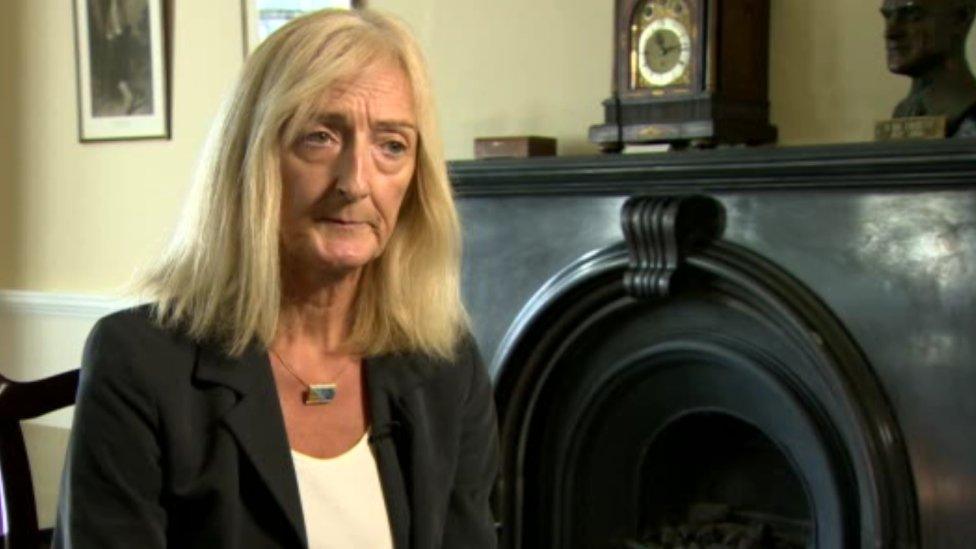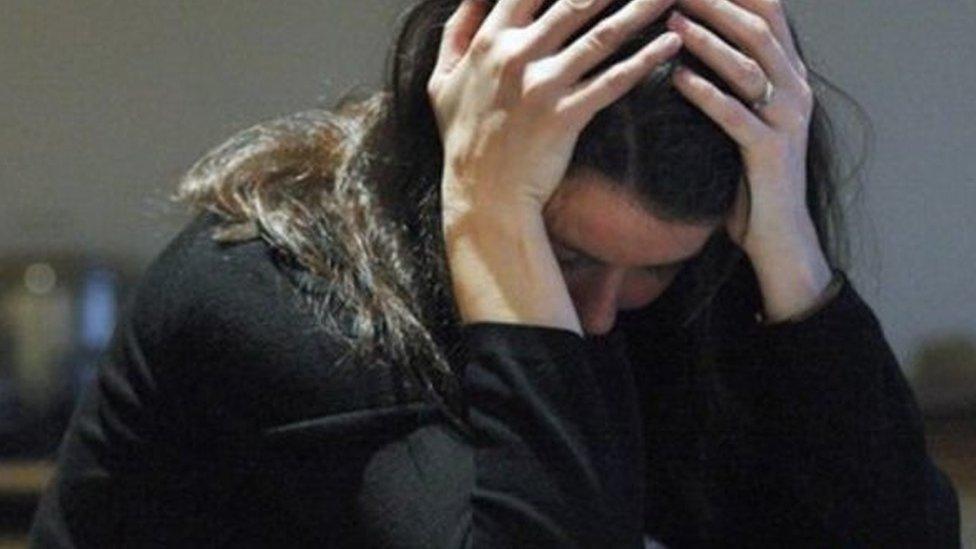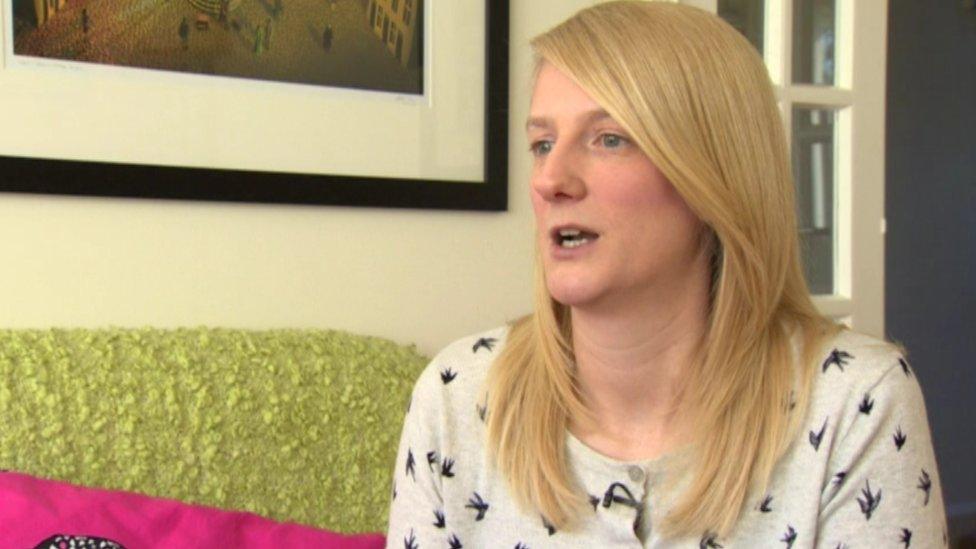Northern Ireland Health: Lack of perinatal services 'endangering lives'
- Published

Dr Janine Lynch said the current situation is serious
Northern Ireland's only specialist psychiatrist in perinatal mental health, says the lack of services for NI women who are chronically ill is endangering lives.
Perinatal health covers the time during which a woman is pregnant and up to two years after she gives birth.
Post-natal mental illness, or as it is commonly known, post-natal depression, affects around one in ten mothers here.
Dr Janine Lynch said the current situation is serious.
Post-natal mental illness can be chronic, even life-threatening, when a woman is not offered specialist treatment in either a hospital or by specially trained staff.
Dr Lynch says the current situation is serious: "Women's lives are being put at risk due to the lack of specialist care. And none can be treated alongside their baby when they are feeling at their most vulnerable. Mother and baby have to be separated."
'Unfair'
At the moment Northern Ireland does not have an inpatient specialist mother and baby unit. In fact there is only one specialist psychiatrist for the entire region.
Therefore when a woman is admitted to hospital for post-natal depression treatment they are separated from their baby.

There is a call for perinatal services in Northern Ireland to be radically overhauled
According to the Royal College of Psychiatrists, on average, 75 Northern Ireland mothers per year require admission to hospital.
Speaking on behalf of the Royal College of Psychiatrists, Dr Lynch said this was unfair.
"In Belfast, women have access to a limited service," she said.
"We could do a lot more if we'd more resources, and in all of the other trusts in Northern Ireland, women have no access to specialist dedicated help."
It is understood that the college has met at least five different health ministers over a period of 15 years, campaigning for a specialist mother and baby unit. But Dr Lynch said their calls have fallen on deaf ears.
"They listen and nod, but sometimes you just think they aren't treating it seriously. It is serious - women can die."
The health minister told the BBC that he was aware of the problem and was attempting to find a way to resolve it.
'Fearful of everything'
Lindsey Robinson discovered she had post-natal depression two years after the birth of her son, Reuben.
She told the BBC: "Normally I'm quite a confident and easy going person, but I became fearful of everything. I just didn't know who I'd become.

Lindsey Robinson now writes a blog about her experiences
"I looked at myself in the mirror and I didn't recognise who was looking back at me. I was a mess."
She said the illness impacted both her mental and physical wellbeing.
"I woke each day and thought, 'All I have to do is survive another day until I can get back into bed'."
Lindsey now writes a blog which details how she and others are continuing to cope with the illness.